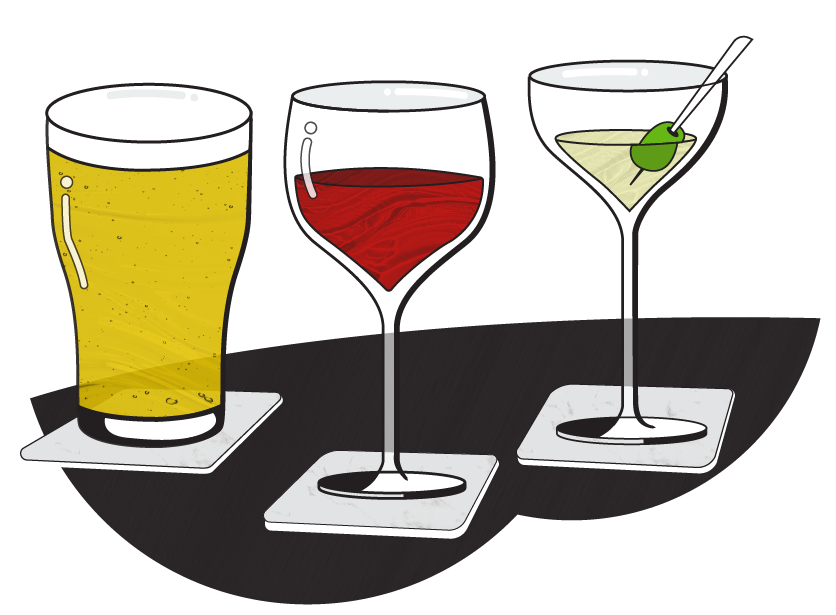A new way to think about alcohol.
Our relationship with alcohol is complicated. We need new ways to think and talk about alcohol that truly reflect the varied ways we use and experience it.
Many of us drink excessively and don’t even know it
One in five people in Oregon1 drink excessively. Most people in this group are not affected by alcoholism or an alcohol use disorder. However, by drinking excessively, people increase their odds of developing an alcohol use disorder later in life.2 It’s easy to cross the line into higher-risk drinking without realizing it, partly because society makes it easy for us to drink this way. Find out more about excessive alcohol use.
More than headaches and hangovers
It’s complicated
The alcohol industry provides thousands of jobs for people in Oregon, fueling livelihoods and bringing us together. Oregon also produces some of the world’s finest beers, wines and spirits — something we’re really proud of. At the same time, excessive drinking comes with heavy costs for all of us, whether we drink or not — from children and families to businesses and communities.
Rethinking is a good thing
“Rethink the Drink” is not a code phrase for “stop drinking.” (Although we do offer resources to help you drink less). We’re simply asking people in Oregon to pause for a moment and consider the role of alcohol in our own lives and communities. Could we handle our alcohol in healthier ways?
How did we get here?
A few questions for all of us, whether we drink or not
Who drinks excessively?
More of us than you might think. Binge and heavy drinking are common among adults of all ages, from twentysomethings to seniors. In fact, people in Oregon in their 30s and 40s binge drink at close to the same rates as younger people.1 Rethinking how we interact with alcohol has benefits at every stage of life. Learn more.
What kills more people in Oregon: excessive drinking or other drugs?
More than 2,500 people in Oregon die from alcohol-related causes every year, which is more than the number who die from other drug overdoses.4 In the U.S., an alarming 1 in 5 deaths of people ages 20-49 is from excessive alcohol use.5 We can start to reduce that toll by recognizing the ways that our society makes it seem harmless and even “normal” to drink excessively.
How would our lives be different if there was less alcohol in them?
What if we drank less each week or each month? What if we could go to a party without needing to explain why we’re not drinking? What if our kids could walk to school without passing billboards that encourage excessive alcohol consumption?







